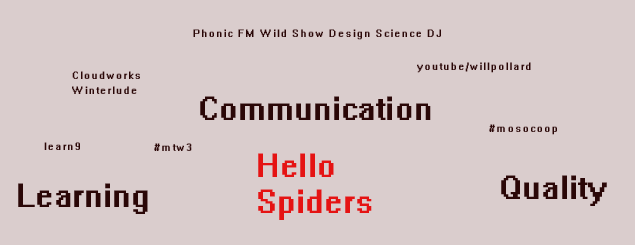@arusbridger notes from yesterday re open journalism, OhmyNews and Unlimited Talk #openjournalism
I don't think Alan Rusbridger will have much more to say today. He was online for an hour yesterday about open journalism.
There was no reply to my questions but I think blogging is more like thinking aloud and then the answer will turn up somewhere else. Keeping the record together is one aspect of this but getting an immediate answer from anybody is unusual.
------------------
will789gb
26 March 2012 3:10PM
What actually happened to Guardian Unlimited Talk?
Why did Guardian staff never join in?
Why was there no development?
Why never mentioned in print?
Why was it trashed?
Why was this never explained?
-------------
no answer on this but some great principles-
AlanRusbridger
26 March 2012 3:10PM
Response to WheatFromChaff, 26 March 2012 3:01PM
Open journalism is journalism which is fully knitted into the web of information that exists in the world today. It links to it; sifts and filters it; collaborates with it and generally uses the ability of anyone to publish and share material to give a better account of the world.
A year or so ago, when we were trying to work out how journalism should change, we jotted down 10 principles of open journalism. (obviously you can stick a 'not' in any of the sentences to see what closed journalism looks like)
Here they are:
- It encourages participation. It invites and/or allows a response
- It is not an inert, “us” or “them”, form of publishing
- It encourages others to initiate debate, publish material or make suggestions. We can follow, as well as lead. We can involve others in the pre-publication processes
- It helps form communities of joint interest around subjects, issues or individuals
- It is open to the web and is part of it. It links to, and collaborates with, other material (including services) on the web
- It aggregates and/or curates the work of others
- It recognizes that journalists are not the only voices of authority, expertise and interest
- It aspires to achieve, and reflect, diversity as well as promoting shared values
- It recognizes that publishing can be the beginning of the journalistic process rather than the end
- It is transparent and open to challenge – including correction, clarification and addition
------
This sounds good but I wonder why there was not more effort to integrate Guardian Talk with this sort of thing. As memory serves there was quite a lot in print over the early years about the downside of bloggers etc.
But maybe things are changing, I should try to keep up
AlanRusbridger
26 March 2012 3:18PM
Response to alixir, 26 March 2012 3:02PM
I was thinking aloud about moderation in a really good series of discussions with readers.
The theme was: what would readers like to give us (apart from the obvious: money)? Among the possibilities we discussed: time and data. In discussing time - the idea of readers playing a more active role in the creation of the Guardian in all its different aspects - we talked about moderation and the role hundreds of thousands of people have played in creating Wikipedia. We talked about whether this should be paid for or voluntary. And whether it was at all feasible, or even desirable.
The idea may be interesting, or crazy. It was an interesting discussion, though ... and quite a few readers indicated they liked the idea.
What do you think?
-------------------
will789gb
26 March 2012 3:22PM
Response to AlanRusbridger, 26 March 2012 3:18PM
Have you looked at OhmyNews?
Twice reported in the Tech bit on a Thursday but I don't think ever in Media.
Now only in Korean, they can't subsidise an English version.
Citizen Journalism as discussed at OhmyNews. Could the Guardian go back a few years and really have a look?
======================
Maybe they will. Just because there appears not to be a response it could still be that somebody reads it.
---------------------------
Just to recap though I have not checked the dates recently, Guardian Unlimited Talk was a social media network supported by Guardian readers that had no input from Guardian staff, was not developed from as a software investment, and had no promotion from print journalists.
Is there a story in there somewhere?
